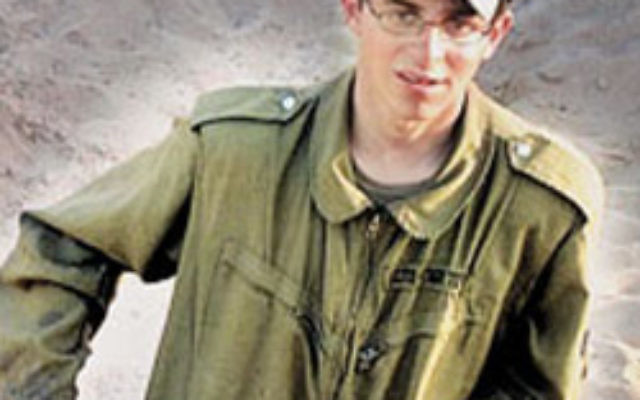Israel’s High Court green-lights Shalit deal
Israel’s High Court of Justice rejected Monday night petitions filed by four bereaved families against the Shalit deal, saying that it saw no room to intervene in the government’s decision.
The petitions were filed as part of a 48-hour window afforded by the Justice Ministry to members of the public who wished to contest the swap, which will see Israel release 1,027 Palestinian prisoners in exchange for Gilad Shalit’s safe return after over five years in Hamas captivity.
The court’s ruling followed a heated debate that pitted Gilad’s father, Noam Shalit, against family members of terror victims, who beseeched the three-judge panel to suspend the deal. “You are our only hope to put a stop to this madness,” one of the petitions said; while another begged the court to “Spare the living from these messengers of death.”
The heavy emotional toll suffered by the bereaved families was evident as they blamed the Shalit family of being oblivious to their pain: “You should be ashamed of yourself! Our sons’ blood is on your hands,” they accused Noam Shalit.
“This is a highly complex case,” Chief Justice Dorit Beinish said in the ruling. “The ethical and legal issues are clear to all of us, as we are part of society. The dilemmas are formidable.
“The price is the nullification of court rulings and verdicts, of effort put in by defense and legal elements – all to ensure that these individuals are behind bars,” the ruling said.
“This is not the first time this court has had to hear petitions regarding deals which include the release of Palestinian prisoners. There have been cases of political gestures and those meant to secure the retrieval of captives of the remains of IDF soldiers held by terror groups or enemy nations… In all of these cases, this court did not see fit to interfere in government decisions, due to the diplomatic nature of these decisions.
“While the petitions at hand seem similar to past cases, the nature of today’s debate was different in both scope and intensity,” the ruling continued. “There is no doubt that the government decision would see a greater number of terrorists released without having served their sentence. The majority of them are heinous murderers, whose hand are stained with the blood of hundreds of victims… slain during Israel’s relentless fight against terror.”
“The petitioners questioned the president’s clemency authority, maintaining that the government’s decision on the terrorists’ release de facto denied the president the ability to use his own discretion while considering each clemency petition. They also argued that the government does not have the legislative authority to decide on the collective release of terrorists,” the court continued.
“The State said on the other hand, stressed that the timetable set for the execution of the prisoner exchange was critical and was meant to thwart any possible risk to Gilad Shalit’s well being. The State further argued that the deal does not express a political gesture and that the negotiations leading up to it were held under the duress of a hostage situation; which dictate finding not the best solution but the only viable one – Gilad Shalit’s release.
“It is the nature of such negotiations to be clandestine and include considerations and information we are not privy to.”
“We reject the petitioners’ argument that the president lacks the authority to grant clemency in this case… the president’s discretion in such matters is extensive and it includes the authority to grant political clemency, as well as to pardon an offender as part of a group,” the court said.
As for the disputed nature of the deal itself, the ruling noted that: “Such decisions are to be made by the Israeli government… which has at its disposal the proper means and power – as the executive authority – to sign diplomatic agreements, including such ones as we are debating today.”
“Our hearts are with the families. We understand their pain and we know that this is a very difficult deal. Unfortunately… suspending the deal won’t bring the victims of terror back (to life), but it could condemn Gilad to death,” Noam Shalit said.
YNETNEWS.COM


comments